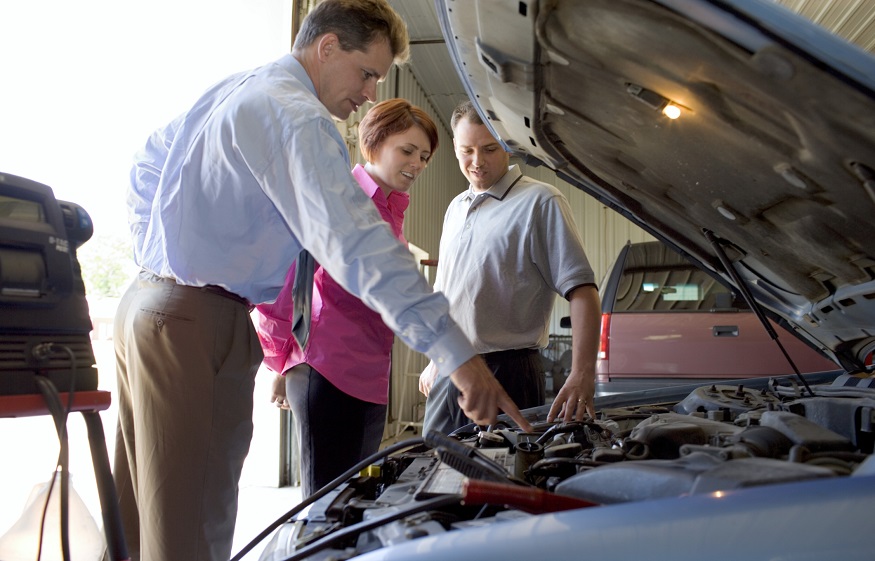
Beginner’s Guide to Buying a Car at Auction
There has been a remarkable spike in the number of buyers who opt to buy their cars from auctions, where they can find good quality cars at relatively cheaper prices. The private buyer is more concerned with the condition of the car, and if the vehicle passes all inspection points, it doesn’t matter if the car is pre-owned. Second, with the economy stuck in uncertain tides, it’s no surprise that the current buyer is looking to make an informed and penny-wise purchase that prevents unforeseen spending. So it goes without saying that buyers who attend auto auctions are on a fixed budget and are likely to stick to car models that fall within their price range.
GSA (US General Services Administration) is known to conduct public vehicle auctions and requires its participants to register in advance to obtain their bidder numbers before the sale begins. The vehicles auctioned by the GSA are pre-owned and non-leased. Once the lease term is over, these vehicles are sold to the public. Participants are not required to pay a registration fee, and there is no buyer’s fee.
Tips for buying a car at auction
Cars sold in auctions are not protected by warranty, do not come with a warranty, and therefore, do not give the buyer the opportunity to take legal action in case some major problem occurs. are discovered in the purchase of car post.
Study the Catalog
Each auction has a catalog of all of their cars. Simplify your options according to your budget, and target just a few cars. However, keep your options open in case the car targeted by you is bought by someone else. Whether you check out cars in person or online auctions, make sure you read each car’s history. Check if the specs match the model, does the property trail add up, do the numbers make sense, do the specs look realistic?
early litter
It is recommended that you personally attend the auction to verify the cars before you decide to purchase a specific model. Some auction houses allow early birds to start the vehicle, which gives a good idea of the condition of the engine. In rare cases, some public auctions even allow their cars to be driven for testing.
Inspect the Firsthand car
Visual inspection can help you find hidden faults in the vehicle. If you don’t know much about cars, consider taking an expert friend along. Inspect engine to make sure it is genuine and fitted correctly, use dipstick to check engine oil looks clean, check wiring and oil, look for signs of repair haphazardly, poor paint quality , engine light, faulty brake discs, among other things. Check the car’s upholstery as well, look for burn marks, stains, and odors.
Match the WINE
Once you have pre-selected the cars you want to view from the catalog, you need to write down the vehicle’s VIN (vehicle identification number), and match it with the other areas of the car, where the number is featured. If the numbers match, you have you had a car with its original parts still intact and not replaced. Otherwise, steer clear and move on to the next car on your list.
Observe other buyers
Use your power of observation to your advantage, and study how other potential bidders react when they inspect the cars that interest you. Do they seem really happy with the vehicle or do you see your brows frowning. Second, if you are unsure of the quality of the car you want to buy, wait and look at other bidders before you set your bid. Take note of how people react to the car in question. If the answer sounds good, go ahead and place your bid as well. Also, beware of planted bidders who may simply be present to increase the initial prices of each bid.
Getting the Car’s Value
As stated earlier, get your hands on the auction catalog, and do your research before you reach the venue. Find out the value of the cars you have shortlisted through auto resources such as Kelley Blue Book. Find out what is the local price for the same car and model through online resources such as Craigslist. Next, rationalize your options for 3-5 cars that fall within your budget. Being aware of the prices will ensure that you will be able to walk away from a bad deal, especially if an auction salesperson quotes too little or way more than they owe.
Define and stick to your budget
It is very easy to get swayed at these auctions and you, being the buyer, should be careful not to go over budget, not if you are going to regret it later. Set a reasonable budget for the purchase of your car, and try to get the best deal possible from the seller. Unless, you really find a car that exceeds your expectations and is better than the one you are considering, it is really not profitable to exceed your budget.
Finally, discuss the shipping costs with the seller if you wish to have the car shipped or brought to your place. You might have to spend more for these services, so make sure the seller takes full responsibility for the safe delivery of your car.



